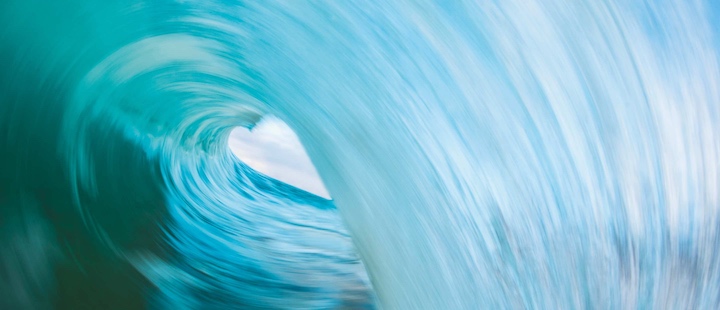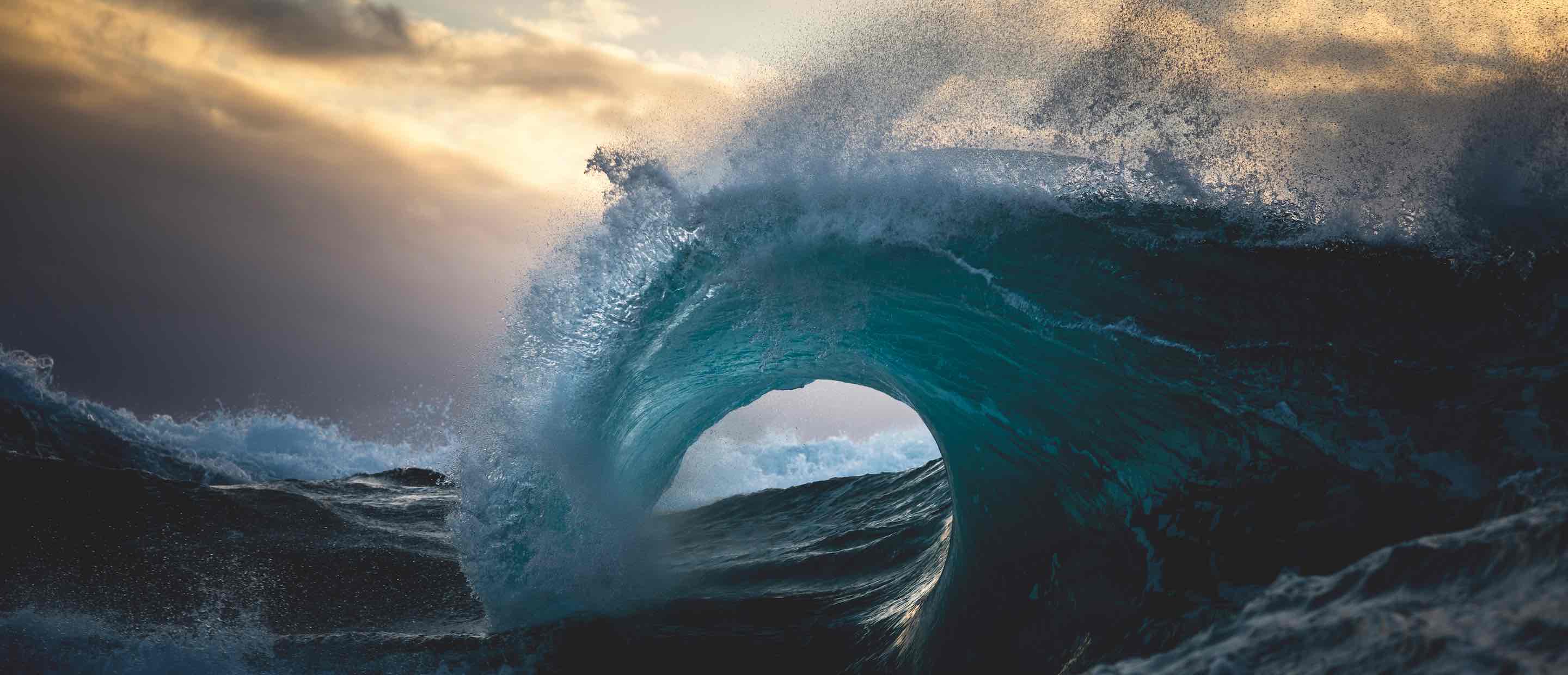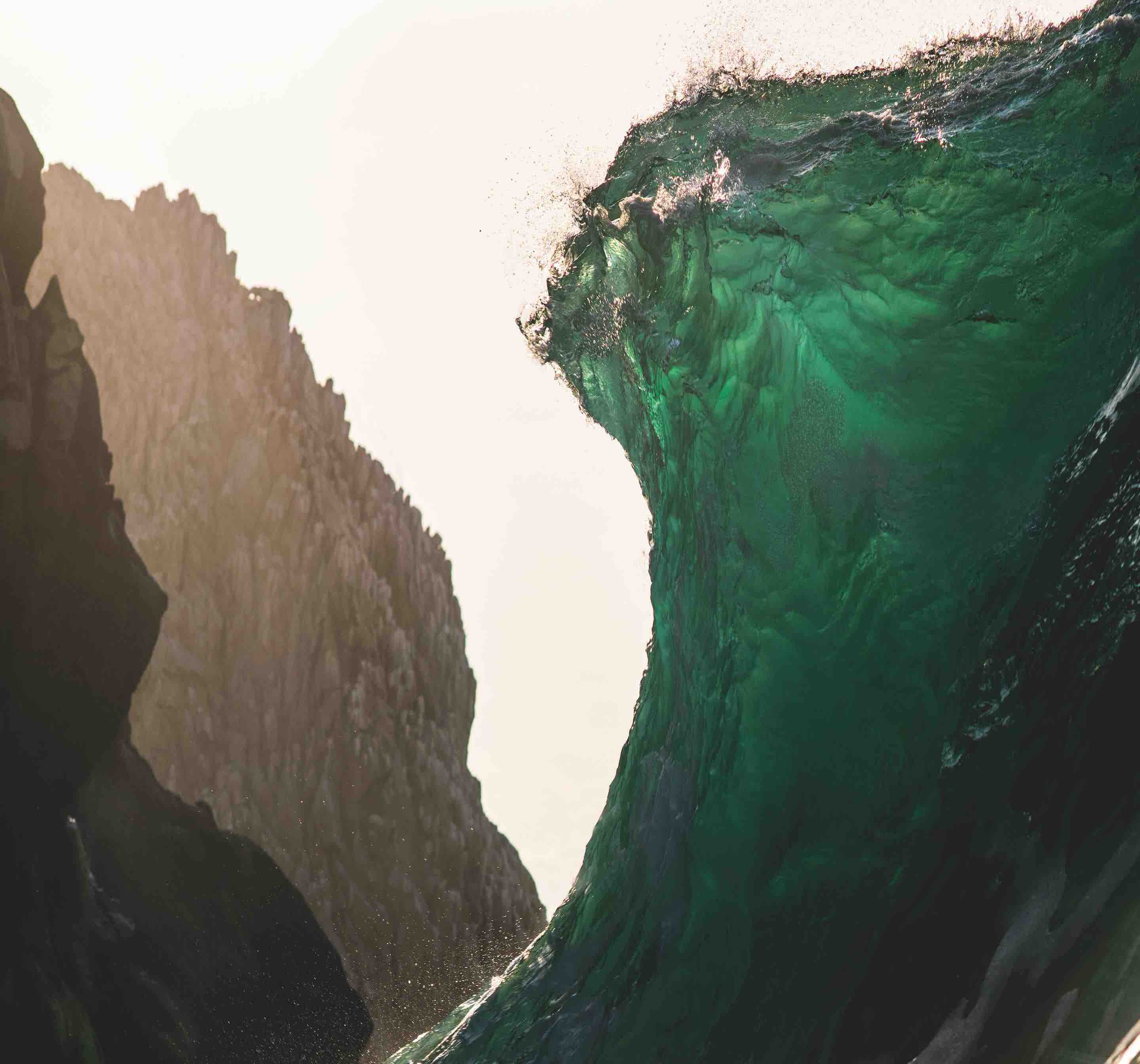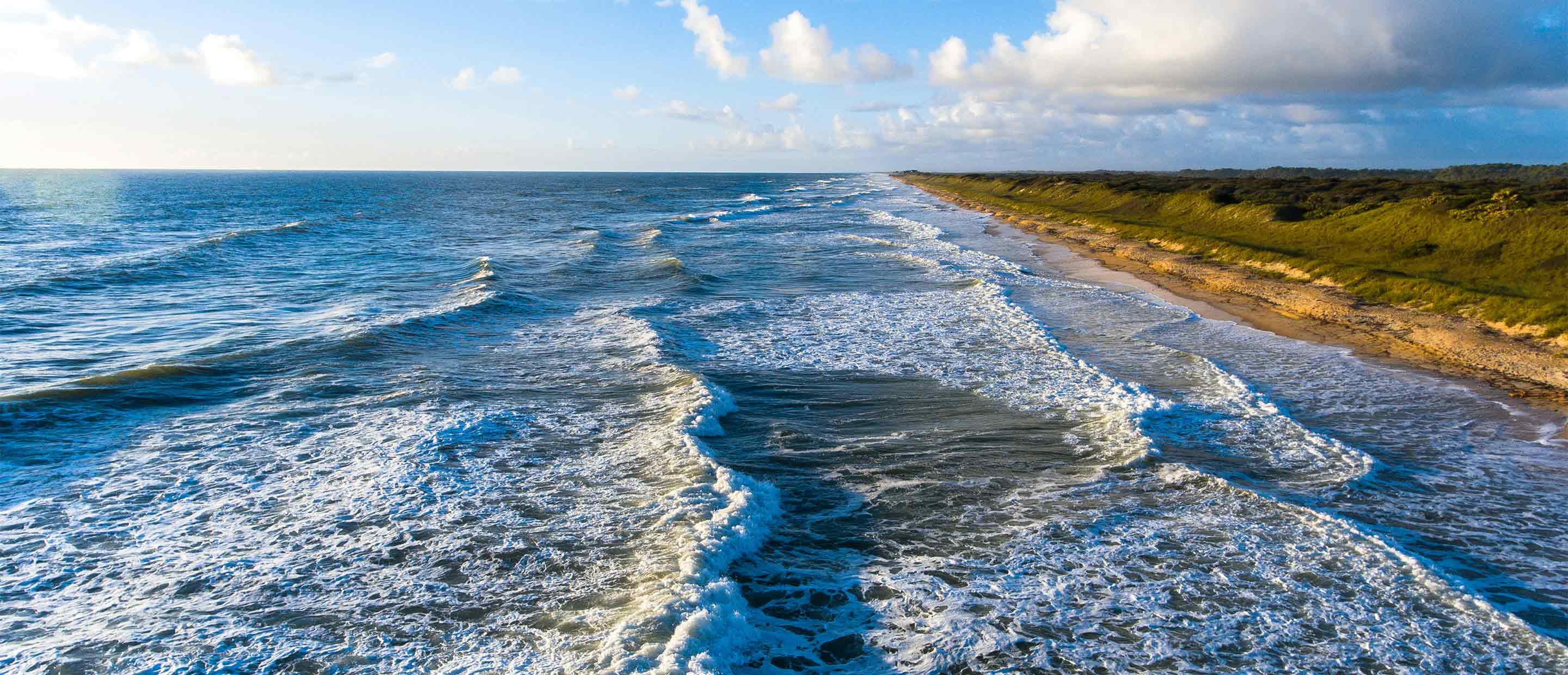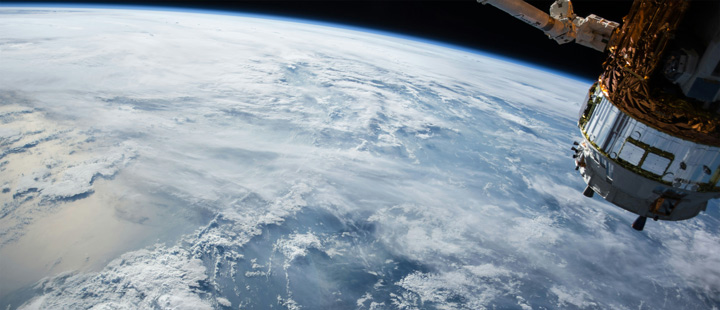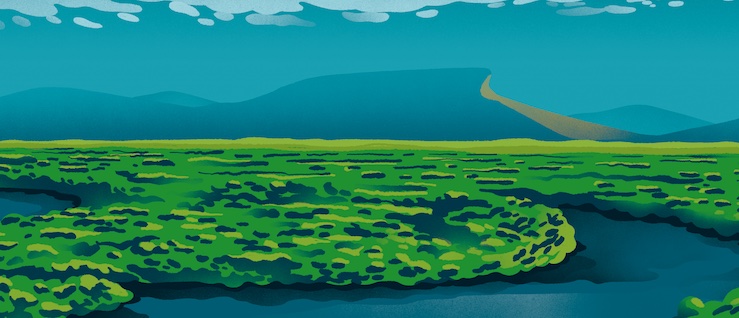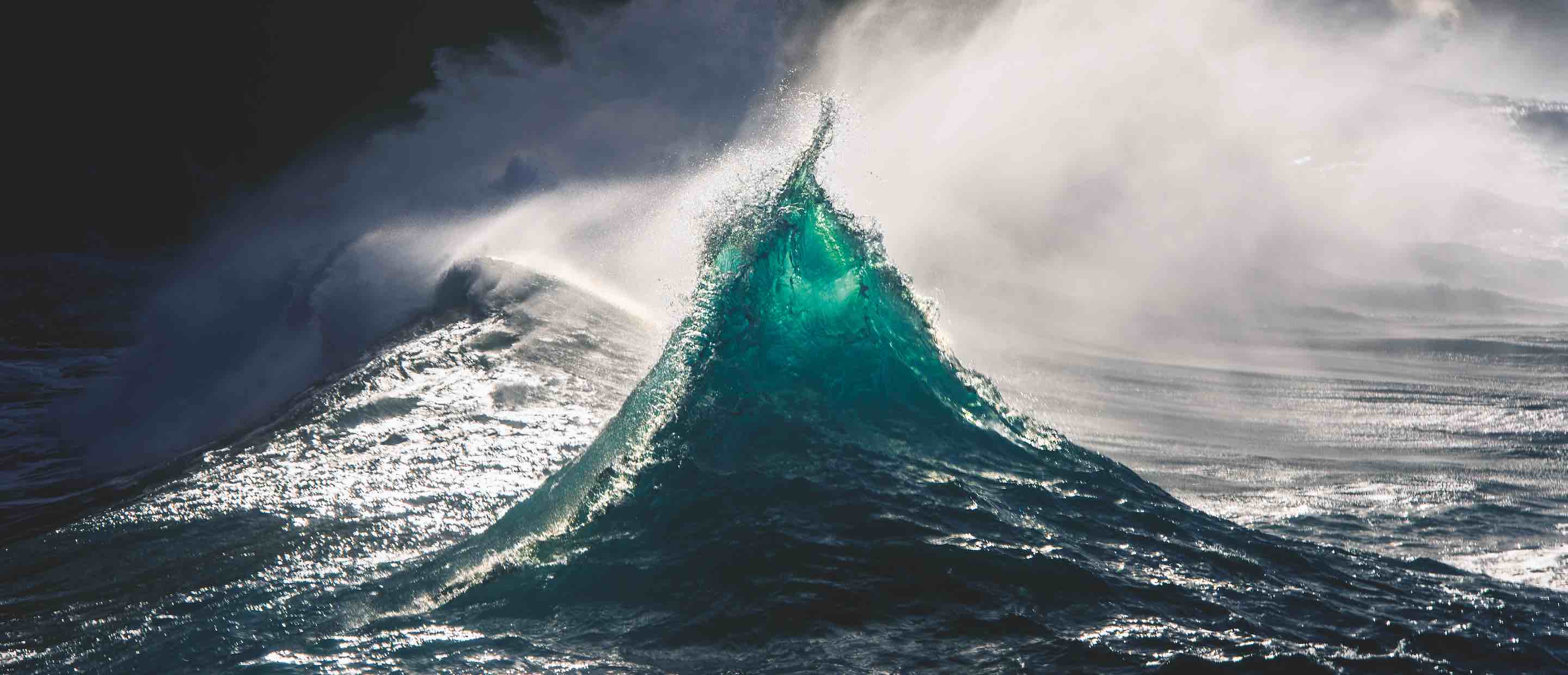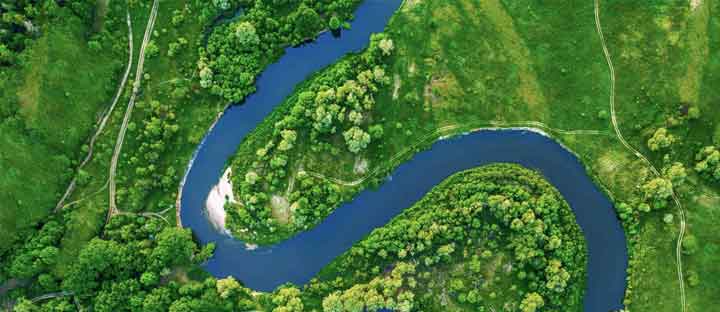Ted Janulis, founder and Principal at Investable Oceans, speaks to LUX magazine’s Chris Stokel-Walker about why the blue economy is making a splash with investors.
Water is everywhere. It covers around 71 per cent of our planet and is an invaluable resource for every one of Earth’s inhabitants. And yet, while businesses focus on ESG goals that target low-carbon emission investments, appraise the green ecosystem and talk about how to develop in a sustainable way, they often consider all this in terms of the air and the soil, not our seas and oceans. As we focus on the green economy, the so-called “blue economy” has not had so much of a look-in.
That needs to change, according to Ted Janulis, founder and Principal at Investable Oceans, which connects private-sector investors seeking market-rate returns with ocean entrepreneurs and businesses. The blue economy, says Janulis, is a vitally important part of our society and how it works.
“If you think of human activities that relate to the seas – whether it’s oil and gas extraction, taking fish out, or putting plastics in – that’s the ocean economy,” says Janulis, from the sidelines of the UN Ocean Conference in Lisbon in June 2022. The blue economy, however, takes inspiration from the green economy, and aims to encourage responsible stewardship of the vast, vital resource that makes our planet work. And just like the green economy, the blue economy isn’t going to materialise overnight from nothing. “It’s not like one day you’ll turn a switch and have a blue economy,” says Janulis. “You have all these activities in the ocean, some of which create impact negatively, some of which impact positively.”
Why sustainable development is central to a sustainable blue economy
At the core of the blue economy is the UN Sustainable Development Goal (SDG) number 14, which tasks the world with being good custodians of the world’s oceans, and SDG 13, which is focused on the climate. “The two are very closely twinned, but in essence the 15 other goals also apply to the ocean,” Janulis says. “You can go right down the list; you can track anything from poverty to health and education.” For example, over three billion people depend on marine and coastal biodiversity for their livelihoods, according to the UN – while we all depend on the planet’s water in multiple ways.
And while society has often to date overlooked the blue economy in favour of the green, that is now changing, according to Janulis. “Climate has been the leading edge and wedge for talking about all these sorts of issues,” he says. In a landmark 2019 report, the Intergovernmental Panel on Climate Change (IPCC) said that the health of our climate is inextricably linked to the health of our oceans and cryosphere (frozen areas). “It’s now fairly common to say you can’t fix climate without fixing the oceans and vice versa,” says Janulis.
The power of the ocean to absorb excess heat and emissions
There is good reason for this: oceans absorb around 30 per cent of all carbon dioxide produced by humans, helping insulate us from the most pernicious impacts of global warming. It’s not just carbon dioxide: the ocean has absorbed more than 90 per cent of excess heat in the climate system.
However, our lifestyle is damaging this precious resource: there could be more plastic than fish in the ocean by 2050, according to the World Wide Fund for Nature (WWF) and others.
“So you have this groundswell of information about the oceans. Add the idea that you protect what you love and know, then add the film My Octopus Teacher, and the BBC series Blue Planet II, and National Geographic,” says Janulis. “The result is that we’re now developing a richer ocean vocabulary, and a deeper appreciation for the ocean.”
That appreciation and understanding of the ocean – and how it feeds into the blue economy – is still limited, however. “When people hear the word ‘ocean’, they start thinking of spending time at the beach or being on a boat,” says Janulis. “And we don’t say, ‘I invested in a land-based company called Microsoft,’ as we would with an ocean-linked business. But if you’re investing in those things, or becoming aware of them, the mind part says the more people understand those adjacencies and connections, the more people will integrate the blue economy into their investment hypothesis.”
"The rise in ocean awareness helps move the blue economy towards the centre of everyone's thinking"
Ted Janulis
Founder and Principal, Investable Oceans
Accordingly, interest in and focus on the blue economy has increased in recent years. “The good news is that we’re seeing a proliferation of all kinds of funds,” says Janulis. There are blue economy-focused Exchange Traded Funds (ETFs) and investment products, all of which contribute to what the Investable Oceans Principal calls an “increasing flywheel” of interest. The larger number of financial products available is also putting the idea of blue-economy investment into the minds of both institutional and individual investors. “That momentum begets momentum,” says Janulis, “and that rise in ocean awareness helps to move the blue economy towards the centre of everyone’s thinking, rather than be tacked on the side of a broader concern about the green ecosystem.”
It is a vindication for Janulis, who has been interested in oceans all his life, even if he took a 35-year detour into the world of finance. Jobs at Lehman Brothers, Aurora Bank and CRT Capital Group took his attention for more than three decades, before he decided to set up Investable Oceans in 2020, with the goal of encouraging users to invest in that broad array of investment opportunities. “Now those things have come together, because people started asking me ocean questions, from how do I scale up my lionfish wholesaling business to trying to find subordinated debt for an eco-cruise idea,” he says. At first, Janulis wasn’t fully convinced of the market opportunities – but was quickly disavowed of that. “There were, in fact, investable market opportunities right across the blue economy,” he says. “You didn’t have to think you’d give up yield automatically.”
Indeed, the sheer scale of potential investable opportunities across the blue economy blew Janulis away. Investable Oceans has now produced more than 1,300 research pieces and articles. It is an indication of the scale of investor opportunity. “I don’t think you’re going to see a billion-dollar ocean fund from one of the major players soon,” admits Janulis. “But what I do think you’ll find is that their climate funds and ESG funds… will start formal or informal sleeves [sub-portfolios] that do ocean stuff.”
The reason? For Janulis, it is the increasing understanding of water’s invaluable role in keeping our society going. “By connecting the dots, investors will look at it as another aspect of the issues they’ve already invested in,” says Janulis. We are in the early stages, he concludes, but building enormous momentum and growth. The blue economy is primed to make waves with the world’s investors.
Are you already an ocean investor?
As Ted Janulis explains, the blue economy is so prevalent it touches a number of different sectors and interests. Here’s where you could invest, with or without knowing it.
Food is “obviously a big one”, says Janulis. A key area is aquaculture, which is growing both on- and offshore. The goal is the pursuit of protein to feed a growing world population. Scarce land resources are already stretched, so interest in ocean-based farming is growing.
Power, particularly tidal, is an important area that investors are looking at, particularly given the crackdown on fossil fuels and the geopolitics of fossil-fuel supplies. Tidal power provides an opportunity to make our power supplies more eco-friendly, while allowing more say over where it takes place – a double win.
Waste management may seem the preserve of land-based organisations, but far from it. “Keeping plastics out of the ocean, or figuring out how to upcycle more is a big issue,” says Janulis. Tackling microplastics is a concern for all of us – for our food chain and our health.
Shipping products across oceans is one of the main ways that world trade transacts, and there are plenty of companies exploring how to make it more efficient and less polluting.
Main image: Love Heart, 14 February 2013, Hawaii © Ray Collins
This article first appeared in the Autumn/Winter 2022 issue of LUX magazine. This issue features the fourth in a series of Deutsche Bank Wealth Management/LUX supplements about our ocean and its importance to both the environmental and economic wellbeing of the planet.
